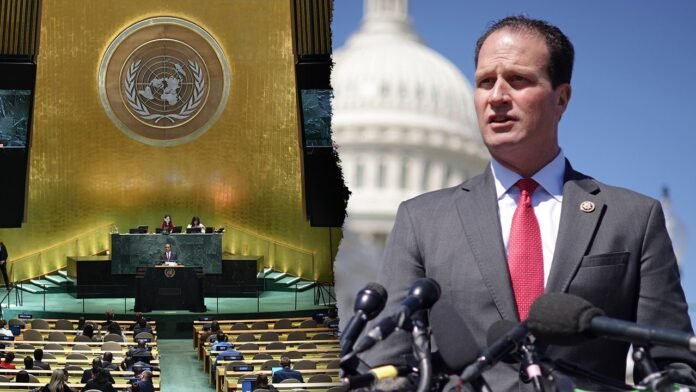Republican lawmakers introduced a bill designed to block the United Nations’ proposed global carbon tax plan. President Donald Trump’s administration strongly opposed the measure, prompting the U.N. to delay the international vote. The legislation marks a significant push to maintain U.S. fiscal sovereignty and reject external tax mandates.
Therefore, representative August Pfluger from Texas announced the bill as part of the Republican Study Committee initiative. He said the measure ensures no foreign entity can impose taxes on American citizens or companies. Pfluger emphasized that only Congress has constitutional authority to approve or levy taxes nationwide.
Furthermore, the bill prohibits any U.S. funding for projects connected to a global carbon tax proposal. It would also end voluntary American contributions to any U.N. agency enforcing such environmental levies. Supporters argue the measure protects taxpayers and prevents international organizations from influencing domestic financial policies unfairly.
Moreover, the U.N.’s International Maritime Organization had scheduled a vote on the carbon emissions shipping tax. However, strong objections from Washington and Riyadh forced officials to postpone the decision for another full year. The proposal, supported by Brazil and the European Union, aims to promote cleaner global trade practices.
However, President Trump described the tax plan as an unnecessary burden that could damage international shipping markets. His administration lobbied vigorously against the initiative, emphasizing potential increases in trade and transport costs. Trump’s intervention reportedly played a key role in halting the tax discussion temporarily.
Furthermore, presentatives Troy Balderson and Randy Weber co-sponsored the legislation alongside Pfluger to strengthen the U.S. position. Balderson praised President Trump and senior officials for defending American interests at the international negotiation stage. Weber stated that Americans never voted for a global carbon tax or foreign-imposed cost increases.
Moreover, republican leaders maintain the bill ensures congressional oversight on any new international environmental or fiscal commitments. They believe it reaffirms America’s right to self-governance while protecting citizens from unapproved economic burdens. As global environmental debates continue, the United States appears determined to preserve control over national taxation.


